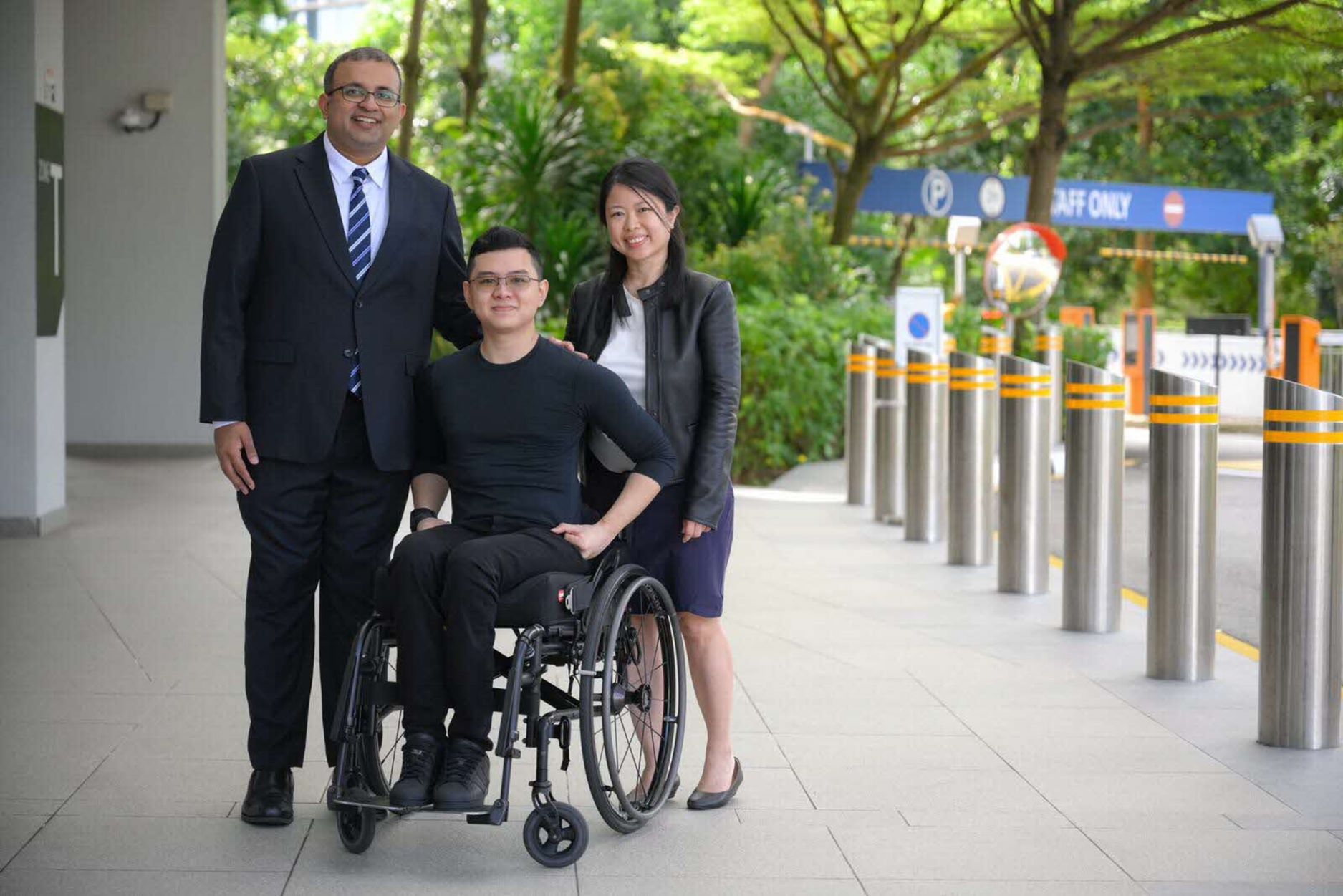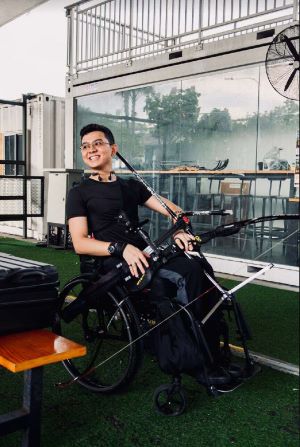Beyond providing medical care, the National University
Centre for Trauma helps survivors regain confidence in all
aspects of life as they journey through recovery.
Issue 7 | December 2024

 Subscribe and ensure you don't miss the next issue!
Subscribe and ensure you don't miss the next issue!
For most trauma survivors, physical recovery is only one chapter in a long healing journey. The invisible emotional scars — anxiety, grief and a fractured sense of self — often remain, leading to a profound, silent struggle. Without the right support system, these wounds can become a barrier to moving forward.
The National University Centre for Trauma, established by the National University Hospital (NUH), plays an important role in supporting trauma survivors, helping them rebuild emotional strength and reconnect with their lives.
Mending invisible wounds
Emotional and psychological impacts including anxiety and depression, are common among trauma survivors. In 2022, a road accident left Clarissa Foong with head trauma, memory loss, bone fractures and organ injuries. Two years on, the 25-year-old still experiences mild cognitive and memory issues. Similarly, 18-year-old Marius Madsen’s life changed after a fall from height left him wheelchair-bound. Both have faced an emotional journey punctuated by challenges, from isolation to identity struggles.
At the National University Centre for Trauma, Ms Foong and Mr Madsen have found solace in a trauma survivor support group, where they connect with others who understand their struggles. It is the first support group of its kind in Singapore for survivors of traumatic bodily injuries, catering to patients from NUH.
“Many patients whose bodies have endured physical trauma struggle with similar emotional battles of isolation after being discharged from the hospital,” says Lim Suat Ting, Senior Trauma Coordinator, Department of Surgery, NUH. “The absence of a national support group was the impetus for us to create a community where survivors can connect, share experiences and heal together. Our goal is to help them build friendships, regain confidence and rebuild their lives.”
The group meets twice a year, offering survivors a safe space where they can learn coping strategies from one another. To enrich this learning journey, the Centre also organises art therapy workshops, providing survivors with a creative conduit to connect with their emotions and express themselves freely.




















